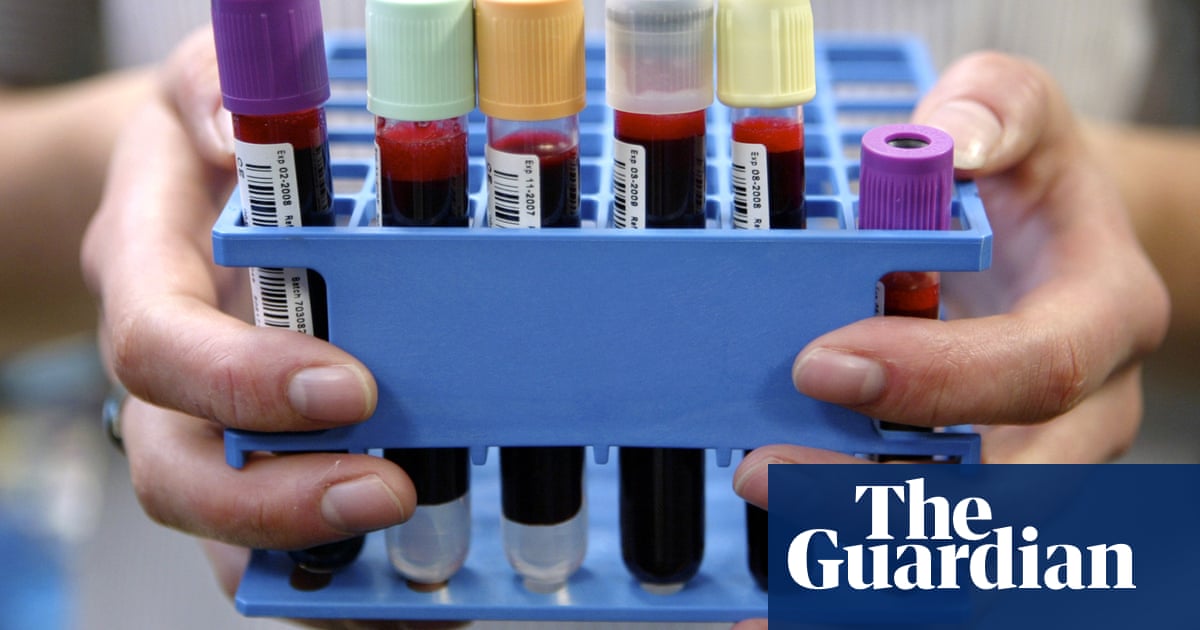
The Swiss pharmaceutical firm Novartis has ditched plans for a large clinical trial in the UK, in a further blow to the government’s efforts to make Britain an attractive place for research and investment after Brexit.
The company decided to scrap the Orion-17 trial of its cholesterol-lowering drug Leqvio, involving 40,000 patients in partnership with NHS England.
In an attempt to win wider approval for the drug, the trial was designed to show that it could prevent the first occurrence of major cardiovascular health problems in high-cholesterol patients, as part of a broader collaboration with the British health system.
“After careful evaluation, we have decided not to move forward with Orion-17,” the Swiss drugmaker said. “We continue to have very high ambitions for Leqvio.”
Novartis will instead pursue a different global trial with 14,000 volunteers, including in the UK. It said the Covid-19 pandemic was among the factors behind the decision as it had made it harder to make progress on the UK trial.
Analysts at Credit Suisse said the move was likely to reflect “slow progress in initial UK rollout to GPs in secondary prevention” – the process of spotting and treating a disease before it fully develops.
Novartis, the world’s sixth-largest pharma company by sales, has its UK head office in White City, west London, close to Imperial College London’s research campus. The company is known for its cancer and multiple sclerosis treatments and used to make the ADHD drug Ritalin.
The news came as the government announced the biggest changes to the way clinical trials are conducted in more than 20 years. Ministers hope to stem the decline in UK trials in recent years as the government clings to its declared ambition of creating a “life sciences superpower”.
The new framework for the Medicines and Healthcare products Regulatory Agency (MHRA) aims to make it faster and easier for drugmakers to get new medicines approved and run clinical trials in the UK, including global “multi-site” trials.
The measures include combining the regulatory and ethics reviews of clinical trial applications, which halved the approval time for studies in a pilot and cut the time from application to recruiting a first patient by 40 days.
The MHRA will also implement a timeline for completion of an application review within a maximum 30 days in general.
The number of studies initiated in the UK fell by 41% between 2017 and 2021, with a similar drop in cancer trials, according to a report published by the Association of the British Pharmaceutical Industry (ABPI) last year. The UK has fallen down the global rankings for late-stage clinical research, dropping from second to sixth in phase II trials and from fourth to 10th place in final phase III trials between 2017 and 2021.
Richard Torbett, ABPI chief executive, said: “The reforms are a significant step forward for UK clinical trials and come at a crucial time for industry clinical research in the UK … We look forward to working with [the MHRA] to make the UK an attractive destination for clinical trials.”
The measures include a legislative requirement to publicly register clinical trials and share summary results with research participants.
Emma Walmsley, the head of Britain’s second-biggest pharmaceutical group, GSK, recently predicted that the UK was at a “tipping point” in its life science ambitions. The industry is locked in a battle with the government over a steep rise in the rebates it pays the NHS each year.












